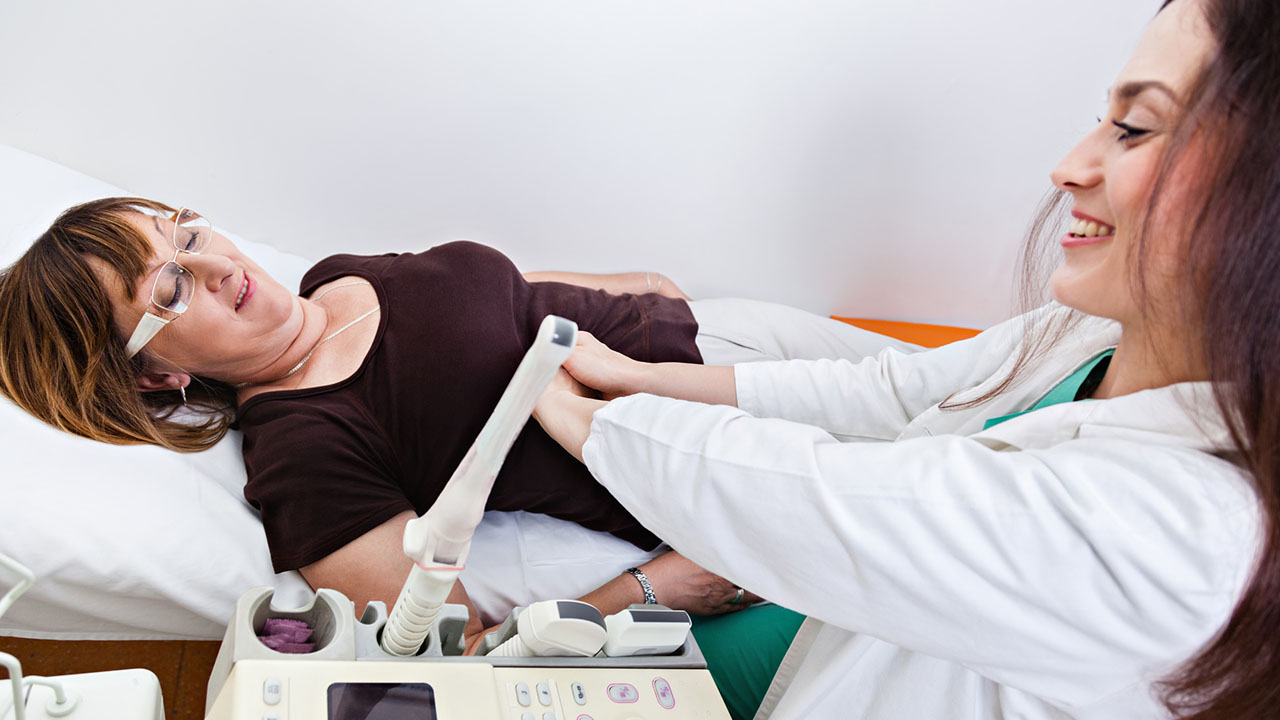 Dangubic/fotolia
Dangubic/fotolia
If you glean nothing else from the topic of menopause and fertility, let it be this: You can still get pregnant until you have passed the one-year mark since your final period! Not understanding this or failing to take it seriously leads to many surprise late-life babies.
While it is certainly less likely, “some women are going to break through and get pregnant,” says Nanette Santoro, M.D., professor and E. Stewart Taylor Chair of Obstetrics and Gynecology at the University of Colorado School of Medicine in Aurora, Colorado, and a member of the board of trustees of the North American Menopause Society.
“It’s theoretically possible that a woman could ovulate after her last period,” Santoro concedes, but “once a woman that’s over 45 hasn’t bled for more than a year, she is very unlikely [to ovulate]. That’s a point that it’s really OK to throw out the birth control.”
Before she is born, a female fetus has 6 to 7 million eggs in her ovaries. No new eggs develop after this. That number drops to 1 million by her birth and continues to drop throughout her life. There are about 300,000 eggs left by puberty and fewer than 1,000 left at menopause. In the United States, the median age of the first menstrual cycle is under age 13, while the median age of menopause is currently 51.4.
Most women will begin showing signs of perimenopause, including irregular or missed periods, sometime in their 40s and spend three to five years transitioning into menopause, defined by an entire year with no period at all.
Santoro says the older woman has both quantity and quality factors working against her. “When I’m talking about the egg, I’m really talking about the egg and the structure [known as the follicle] that surrounds it. The follicle is sort of the balloon that bursts and the egg comes out,” she says.
Santoro says it seems to doctors that the function of the follicle is less as a woman ages, though not dramatically less. And what women tend to notice as fertility wanes are the skipped cycles, she explains.
Eggs and the follicles that surround them are still not fully understood by the scientific community. To appropriately illustrate that point, it’s interesting to note that the deep interior of the ovary from which the egg and follicle pair emerges is formally known as the “primordial follicle pool.”
Most follicles go from microscopic and internal to visible on the perimeter of the ovary within six months. An average woman has 12 visible follicles at any one time. They are about the size of the period at the end of this sentence.
Every follicle has a single egg. The disappearance of follicles and eggs is known as atresia, and doctors don’t really know why it happens. “It’s probably not healthy for 60, 70 and 80-year-olds to be having babies,” says Cynthia Stuenkel, M.D., who says that a follicle-stimulating hormone is sometimes used as a marker of ovarian aging or transitioning into menopause.
Birth control is necessary until it has been one full year since your last period. Santoro says all forms of birth control are appropriate, so choose what’s most comfortable for you unless heart disease is a concern. Tubal ligation (also known as having your tubes tied), barrier methods, progestin, and IUDs don’t cause an increase in heart disease, Santoro says.
Every type of birth control is approved by the Food and Drug Administration through menopause.
And there’s no risk with birth control varieties which stop your monthly period either. “We’ve been very conditioned to think that a lunar menstrual calendar is very important for a woman,” Santoro explains, “but actually it’s not. There’s nothing growing in there that needs to come out. There’s no there there.”
If pregnancy is your goal, know that other than the increased difficulty in getting pregnant due to fewer and poorer quality follicle-egg pairs, there is a higher rate of miscarriage among older moms. This is because genetic abnormalities increase within our eggs as we age.
Santoro says the rate of abnormalities goes up very rapidly around 35 to 37. By the time a woman is 35, for example, her risk of giving birth to a child with Down syndrome is one in 250. One to two percent of pregnancies will result in a child with a Down syndrome diagnosis for mother in the 40 to 45-year-old group.
Finally, she says it is a myth that using birth control pills for years preserves eggs. “The density of egg cells in the ovaries may affect how well they work,” Santoro says, and that is simply a product of where in her life span a woman finds herself.
Reviewed March 30, 2016
by Michele Blacksberg RN
Nanette Santoro, M.D., via phone conversation March 12, 2016. https://arm.coloradowomenshealth.com/about/doctors/santoro/
Cynthia Stuenkel, M.D., via phone conversation July 3, 2015. https://endo.confex.com/endo/2015endo/webprogram/Person140277.html
The Female Reproductive Cycle. Cleveland Clinic. Retrieved March 30, 2016. https://my.clevelandclinic.org/health/diseases_conditions/hic_the_female_reproductive_system
What Happened to All Those Eggs? The New York Times. Retrieved March 30, 2016. http://www.nytimes.com/2013/02/01/booming/womens-eggs-diminish-with-age.html
Danielle E. Buttke, Kanta Sircar, and Colleen Martin. Exposures to Endocrine-Disrupting Chemicals and Age of Menarche in Adolescent Girls in NHANES. Retrieved March 30, 2016. http://ehp.niehs.nih.gov/1104748/?utm_source=rss&utm_medium=rss&utm_campaign=1104748
What Stage? My Personal Path: Menopausemap.org. Retrieved March 30, 2016. http://www.mypersonalpath.com/gtg/?_ga=1.59198501.942407569.1436193446#/12/
Ellen B. Gold, Joyce Bromberger, Sybil Crawford, Steve Samuels, Gail A. Greendale, Sioban D. Harlow, Joan Skurnick. Factors Associated with Age at Natural Menopause in a Multiethnic Sample of Midlife Women. Am. J. Epidemiol. (2001) 153 (9):865-874. doi: 10.1093/aje/153.9.865. http://aje.oxfordjournals.org/content/153/9/865.full




